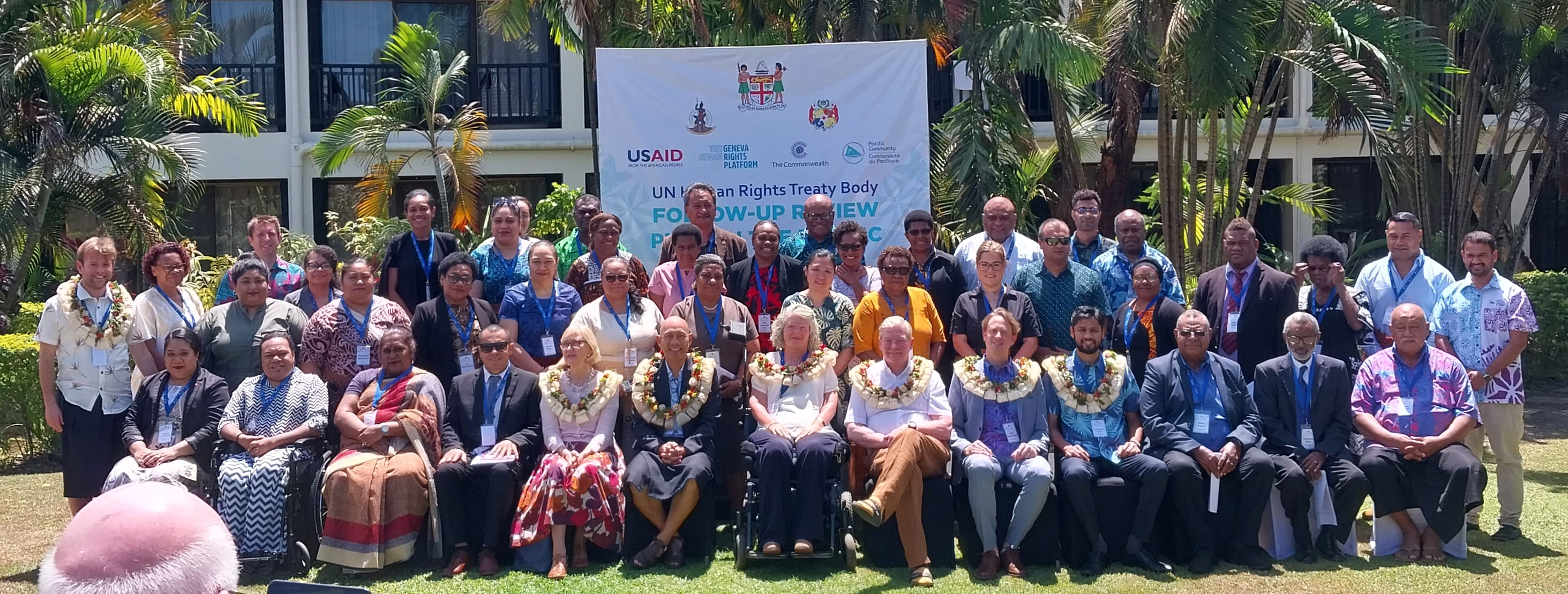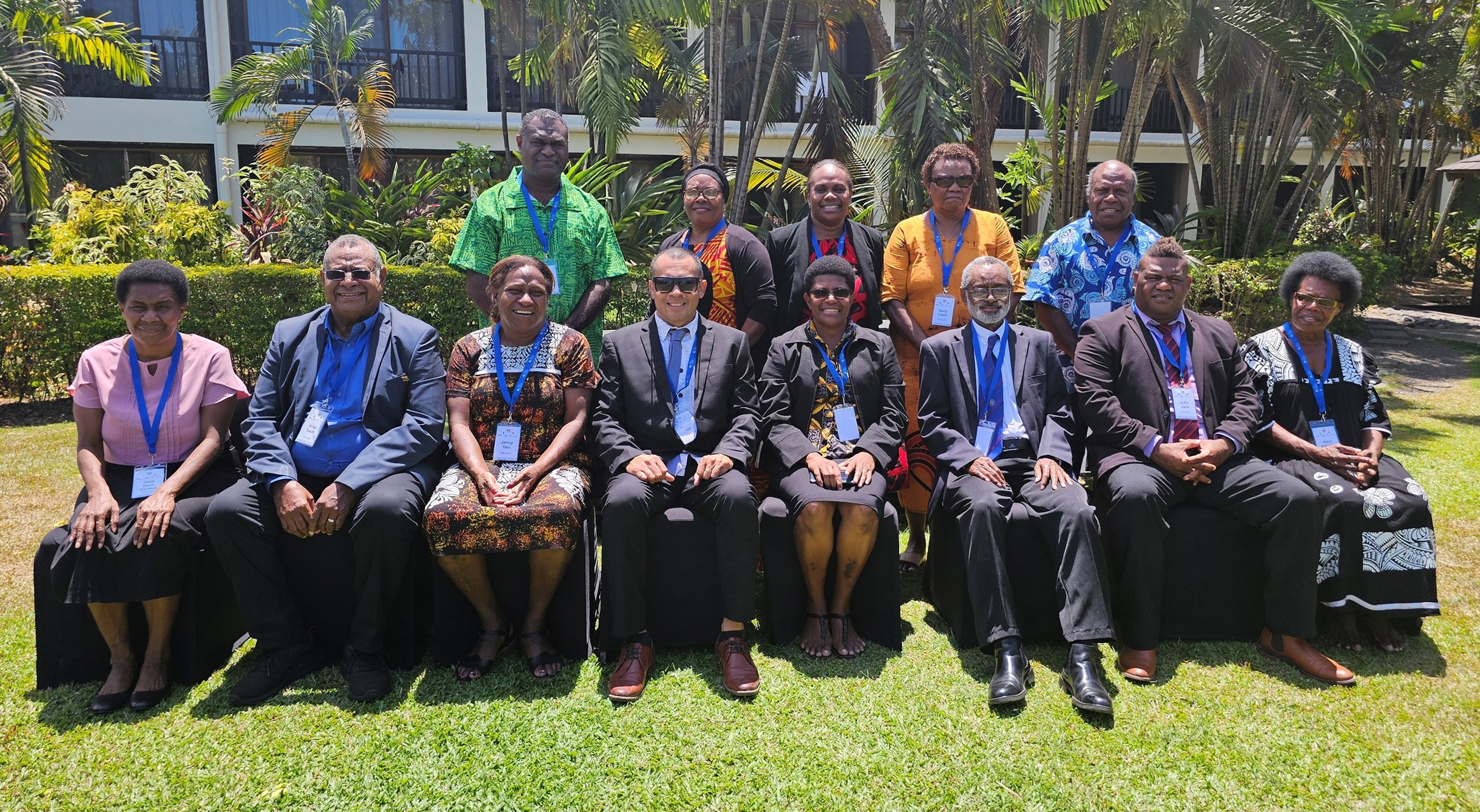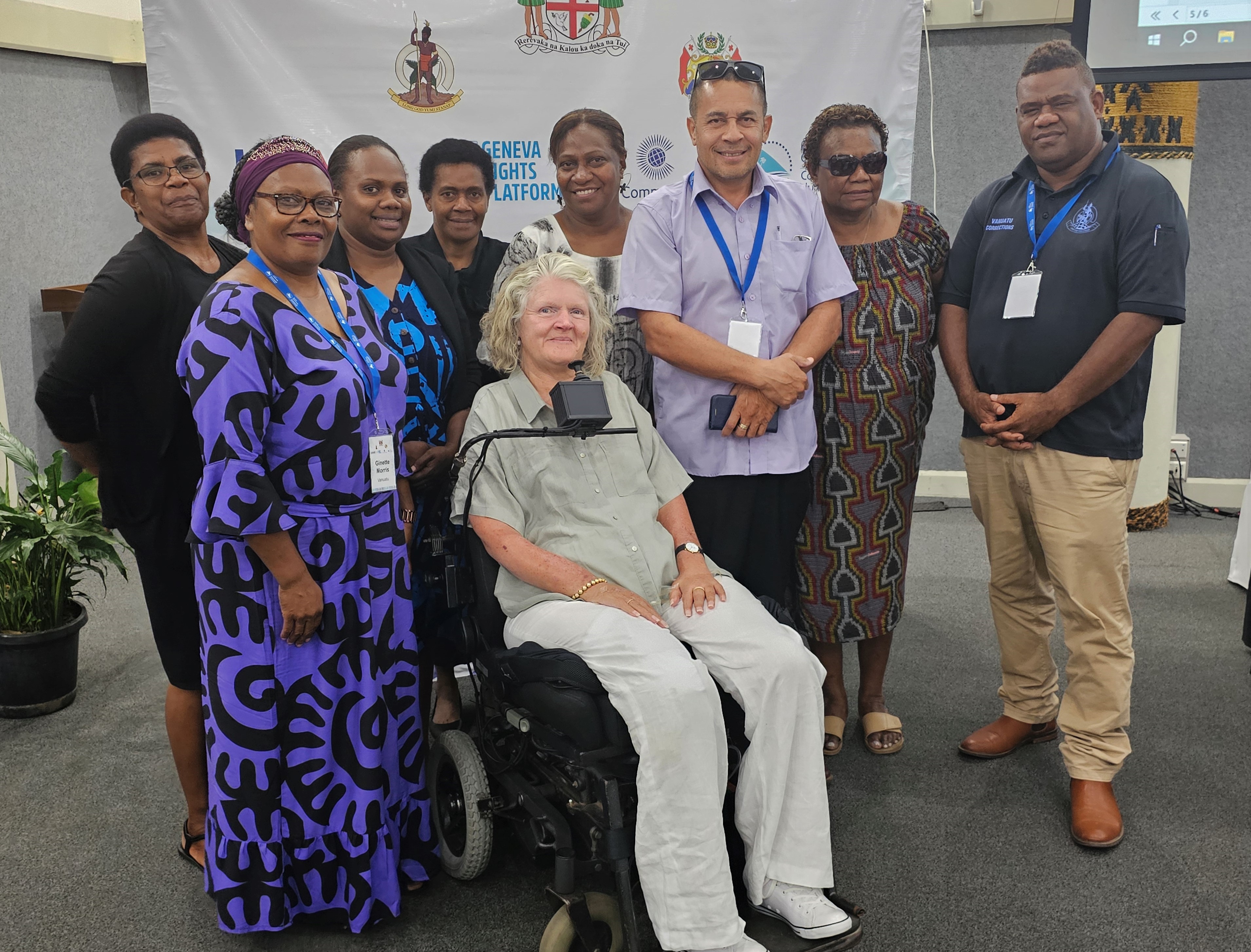
Vanuatu participated in the pilot review of the UN Human Rights Panel in Nadi, Fiji.
The three-day deliberations focused on the implementation of the latest recommendations of the UN Committee on the Elimination of All Forms of Discrimination against Women (CEDAW), the UN Committee on the Rights of the Child (CRC) and the UN Committee on the Rights of Persons with Disabilities (CRPD).
The importance of holding such meetings in the regions under investigation so that the Committee can experience first-hand the benefits and challenges faced by these countries.
The Acting Director General of the Ministry of Justice and Community Services, Pacco Siri, led a 13-member delegation of representatives from Government, NGOs, Civil Society Organisations and Non-Profit Organisations to this pilot review meeting.

In presenting Vanuatu’s report, ADG Pacco Siri firstly spoke about the achievements in implementing the three UN conventions.
In light of CEDAW, Vanuatu has developed a National Gender Equality Policy 2015-2020 to pursue four key strategic objectives, including reducing domestic and gender-based violence, empowering women economically, promoting women’s leadership and equal participation, and laying a foundation for gender mainstreaming.
The Department of Correctional Services, has opened a new separate centre for all female prisoners in 2022. This includes a separate cell for breastfeeding female prisoners where the baby can stay with the mother for at least two (2) years with government support.
Also, the establishment of the Family Protection Unit within the police stations in all provinces with the NO DROP Policy in the prosecution of domestic violence cases. This has made it easier for women and girls to report cases of domestic violence and receive appropriate counselling and redress faster than in the past.

The policy was revised in 2019 to 2020 and the new National Gender Equality Policy (NGEP) 2020 to 2030 was introduced in 2021. This identifies climate change as one of the key strategy areas for promoting gender-specific measures and community-oriented solutions for climate and disaster resilience. The Gender and Protection Cluster (GPC), in collaboration with the NDMO, is part of the humanitarian cluster system in Vanuatu that works with partners, civil society and faith-based organizations to implement response and recovery activities
The Authorised Persons (AP) is another development for Vanuatu under the Family Protection Act which has been successful during its pilot phase and now expanded to another Province. The Ministry of Justice and Community Services and the Department of Women’s Affairs is responsible in this space.
For CRC, the Government through the Ministry of Justice and Community Service has established a fulltime Child Desk responsible for the rights of Children under the Convention on the rights of the child. The desk has expanded its services in establishing 12 provincial officers looking after 6 provinces looking after community awareness as well as legal address on child protection issues or abuses.
This involves a referral pathway mechanism through case management system for every offence that is reported to ensure that child perpetrators and properly went through justice.
In our effort to review our existing child protection Policy2016 – 2026 which addresses 8 strategic areas including mainstreaming child protection in emergencies.
With regards to legal protection, strategy area no.6, we have developed four different legislations including Child Protection Bill, Adoption Bill, Juvenile Justice Bill and Juvenile Justice Procedure Code.
The government has increased its budget to cater for the operations for the implementation of the Child Protection Policy this year 2023.
During natural disasters Child Desk becomes the Child Protection Sub cluster is part of the Gender Protection Cluster to assist during the natural disasters for response and recovery.
The Early Childhood Policy has encouraged a lot of development in positive parenting and encourages all children to go through a formal and inclusive education for all.

For CRPD, the Government in its effort to address the Convention on the Rights of Persons with disability has established the Disability Desk under the Human Rights Unit within the Ministry of Justice.
In 2018, National Disability Inclusive Policy 2018 - 2025 was launched. The Policy has 8 priority areas, which the government works with its partners to implement.
One of the main policy priority areas includes, mainstreaming the rights of persons with disability across every government agency. This has seen the development of separate policies especially with regards to inclusive education and health inclusive strategy plan.
The Disability Desk is part of the Gender Protection Cluster, as sub cluster during natural disasters.
Under the inclusive education we have recruited a full-time Sign Language Coordinator who is now developing a national sign language.
The Challenges faced with the implementation of these HR Conventions is the fact that our islands are scattered geographically and resources are limited in many areas including capacity, limited resources, funding limitations, natural disasters, political instability and cultural norms and traditions that clash with Human rights requirement.
